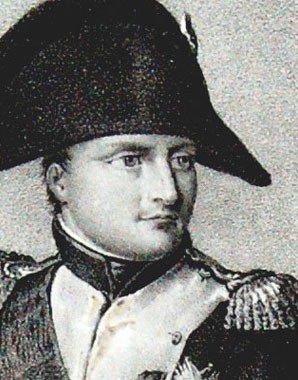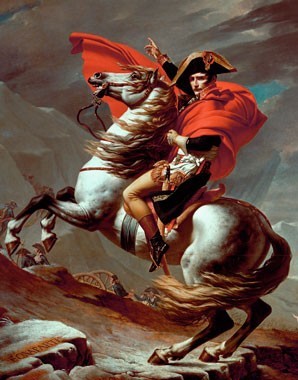Franz II (I): A difficult beginning
Franz ascended the throne in 1792 at a difficult time. Europe had been convulsed by the French Revolution. Immediately after he had assumed the reins of government revolutionary France declared war on Austria.
The First War of Coalition began, lasting until 1797. It was during this time that the king and queen of France were executed, the latter being Marie Antoinette, Franz’s aunt, who was guillotined in 1793.
All this reinforced the fundamentally conservative attitude of the young emperor, who saw in the ideas of the Enlightenment a threat to the state. In 1794 Franz acted with great harshness against liberal intellectuals who had been involved in the so-called Jacobin conspiracy against Habsburg state power. This brought in its wake stringent police measures and strict censorship, rescinding the freedoms achieved in the area of press and publishing during the Josephinian period of reform.
In his foreign policy Franz was more or less forced into a position of reaction and thus had very little room for manoeuvre. At first there were territorial gains for the Habsburg Monarchy: in 1795 Austria received West Galicia in the Third Division of Poland, when the historical kingdom of Poland was completely divided up between the Great Powers of Prussia, Austria and Russia and disappeared from the map. However, this was later followed by cession of territory in the Treaty of Campo Formio in 1797. The loss of the rich provinces of the Austrian Netherlands and Lombardy together with the historical Habsburg outpost of Breisgau in Swabia was only partly compensated for by the gaining of Venetia and Dalmatia.
Further military conflict with France in the Second War of Coalition from 1799 to 1801 quickly demonstrated the limitations of Austrian aspirations to remain a Great Power. At the Treaty of Lunéville the Habsburg Monarchy was forced to admit defeat as an active military power. In the military genius of Napoleon Franz had found an overwhelmingly superior adversary.
Habsburg identity was being shaken even harder to the core by the incipient decline of the Holy Roman Empire, as the traditional heads of which the dynasty had regarded itself for generations. The seismic changes in the political landscape of Europe threw the anachronism of this entity into sharper focus than ever before. At first drastic restructuring was undertaken within the empire: the spiritual principalities were secularized and the majority of the minor states, which most strongly embodied the concept of the empire, lost their sovereignty and were mediatized or attached to more powerful neighbouring states in the Final Recess of the Reichsdeputation of 1803. This took place against the Habsburg emperor’s will, thus revealing his powerlessness in questions of policy to do with the empire. When the majority of the German princes affiliated themselves to the Rhenish League on French initiative, and with French hegemony hollowing out imperial authority, it was obvious that the end of the Holy Roman Empire had come. Franz laid down the imperial crown on 6 August 1806 and formally dissolved the empire.















